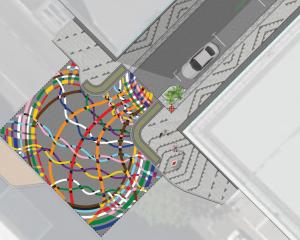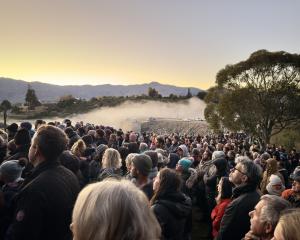The action comes in the wake of legislation requiring the compulsory installation of costly security measures, which came into force on Monday.
New Zealand Taxi Federation executive director Tim Reddish said there was a potential for private-hire vehicle operators to "masquerade as taxis".
The Taxi Federation wanted to send them a message that any moves to compete illegally with licensed taxi companies would not be tolerated.
There was a "fear" taxi owners would convert to a private-hire operation, instead of meeting the costly requirements of complying with the legislation, Mr Reddish said.
Dunedin Taxis manager Simone Green said there was "a huge cost" in complying with the changed legislation and compulsory security measures.
She was not aware of any Dunedin taxi companies, or co-operative drivers, choosing not to install the security and GPS technology now required under the legislation. Costs have been estimated at between $1500 and $3000.
There was "definitely" a potential for private-hire vehicles to operate "under the guise" of a licensed taxi company in Dunedin, Ms Green said.
NZTA Otago-Southland principal transport officer Dermot Harris, of Dunedin, said there were "no indications" the new security-camera legislation change had brought about an increase in the number of private-hire vehicles operating in Dunedin.
The legislative changes requiring the installation of approved camera systems and round-the-clock monitoring services were important measures aimed at increasing safety for drivers and passengers, he said.
It was important taxi companies, which comply with the regulations, were not being undercut by operators who did not.
"No complaints have been received from local taxi operators to suggest that private-hire operators are taking fares [in Otago]."
If there was evidence a private hire vehicle owner was competing illegally with approved taxi organisations by accepting casual hires without the prescribed requirement for a pre-booking, the NZTA would investigate, Mr Harris said.
"Taxi operators are relatively quick to inform NZTA if they believe any passenger service vehicles are operating outside the legislated rules," he said.
If evidence of such illegal operations was found, NZTA would undertake prosecutions if required, Mr Harris said.
Mr Reddish said taxi companies were "wary" about the approaching Rugby World Cup tournament, which would "absolutely" provide an opportunity for private-hire operators to poach customers.
About 95% of taxi companies had installed the new equipment, he said.
The law change, which applies to about 6700 taxis, requires that they have an operating security camera, and that taxi companies run a 24-hour call centre. Christchurch is exempt from the change because of the earthquakes and has until May 1 to install cameras.
The requirement covers taxis operating in Auckland, Hamilton, Tauranga, Rotorua, Gisborne, Napier, Hastings, Palmerston North, New Plymouth, Wanganui, Wellington, Nelson, Dunedin, Queenstown and Invercargill.
The law change was implemented following a spate of attacks on taxi drivers, which included the killing of Hiren Mohini, who was stabbed to death by a passenger in the Auckland suburb of Mt Eden last year.
Licensed Taxi
Licensed taxi companies operate from taxi stands and cab ranks, and can also pick-up passengers who hail a fare. Under new legislation, licensed taxis must have security cameras and round-the-clock GPS systems for monitoring purposes.
Private Hire
Private-hire operators are allowed to provide legitimate pre-booked services, such as for tourist shuttle services, wedding vehicles and limousines. They are not allowed to operate a meter and have to carry passengers at a pre-approved price.











